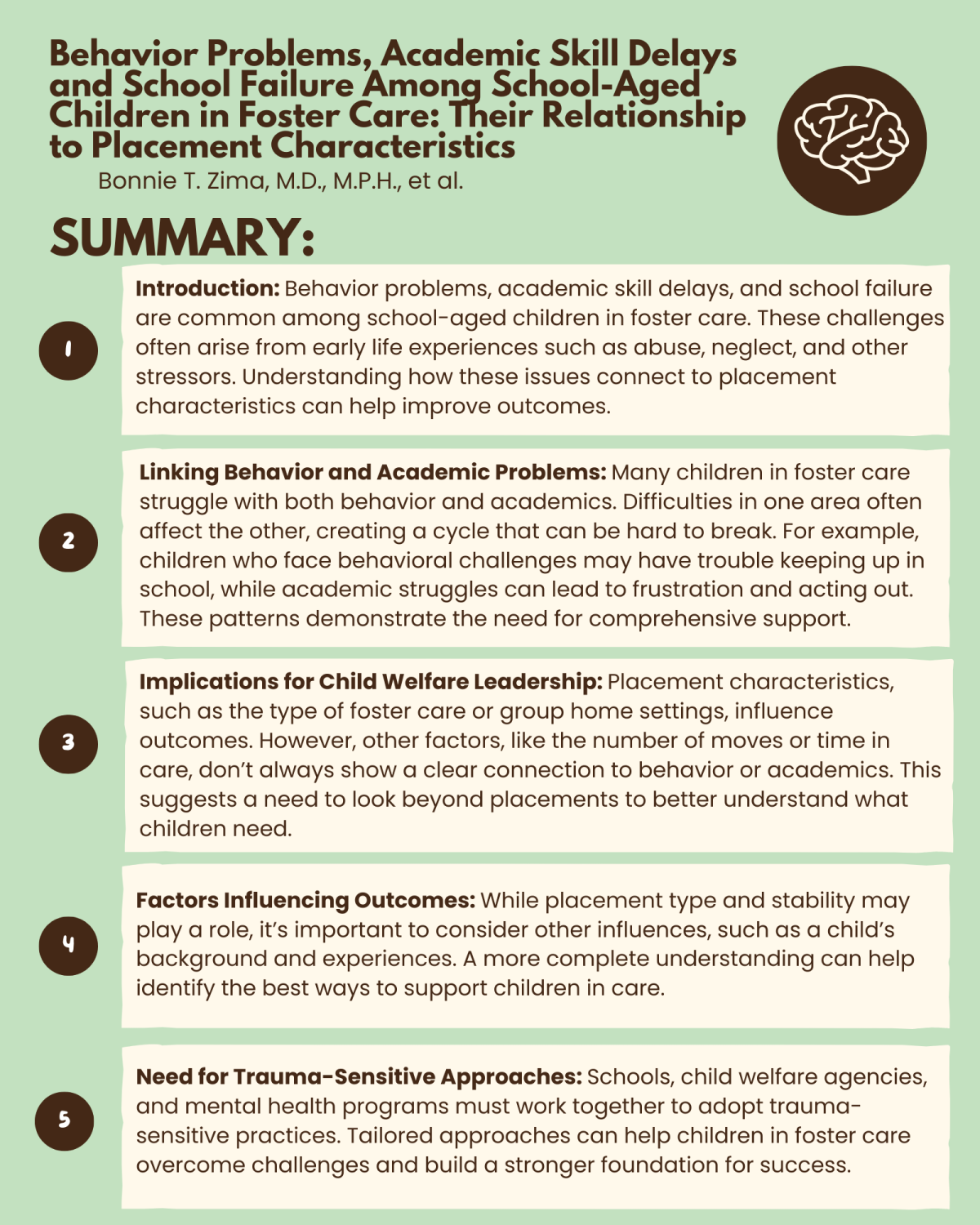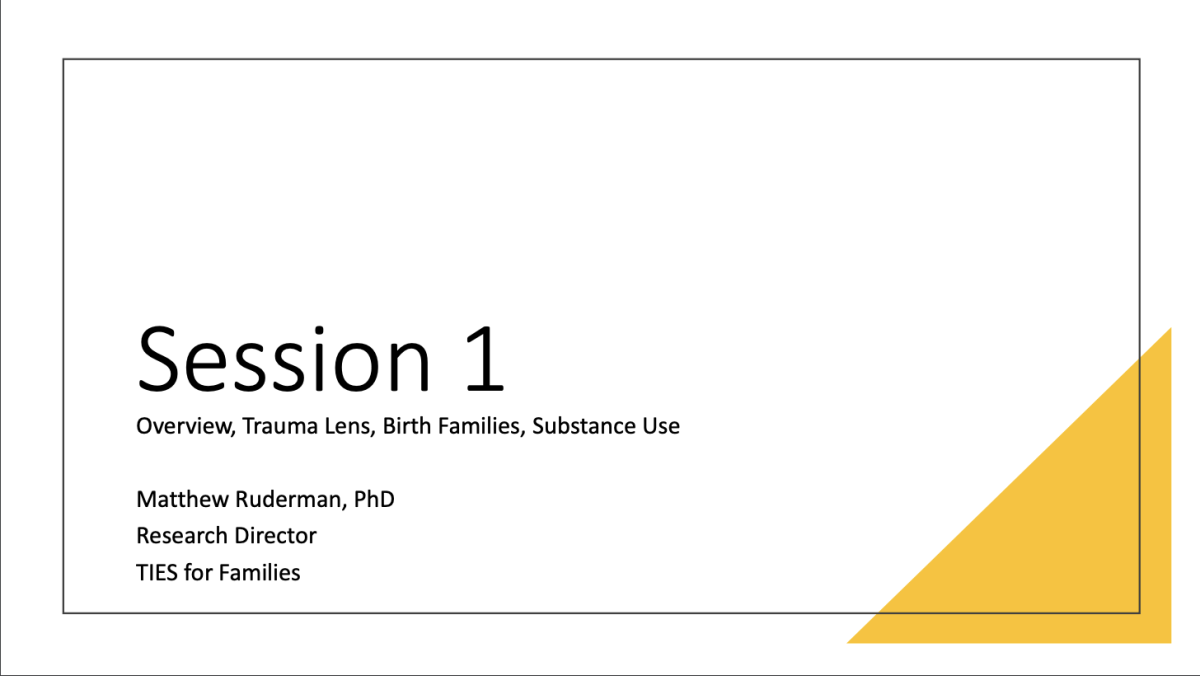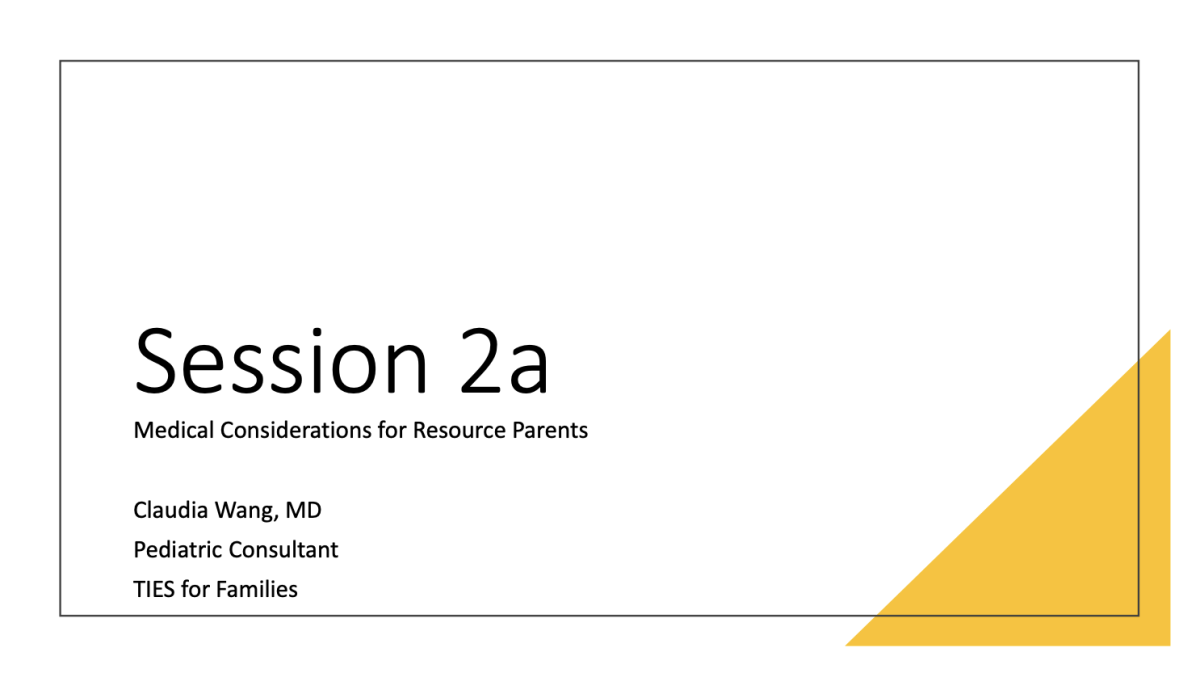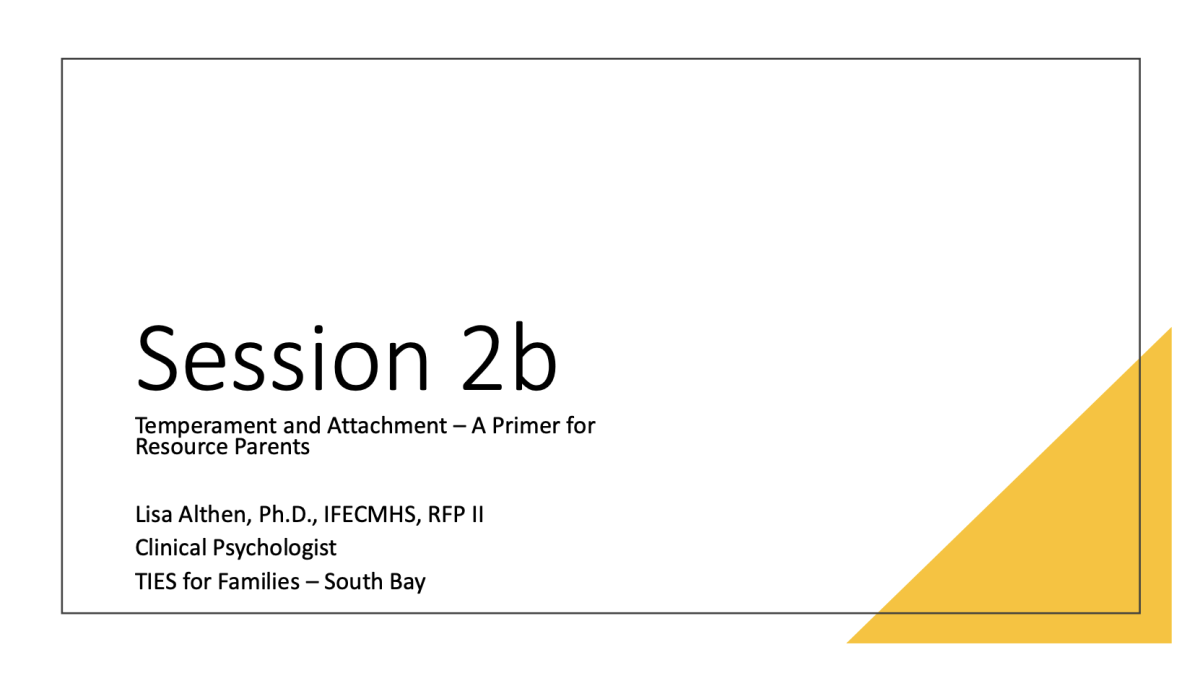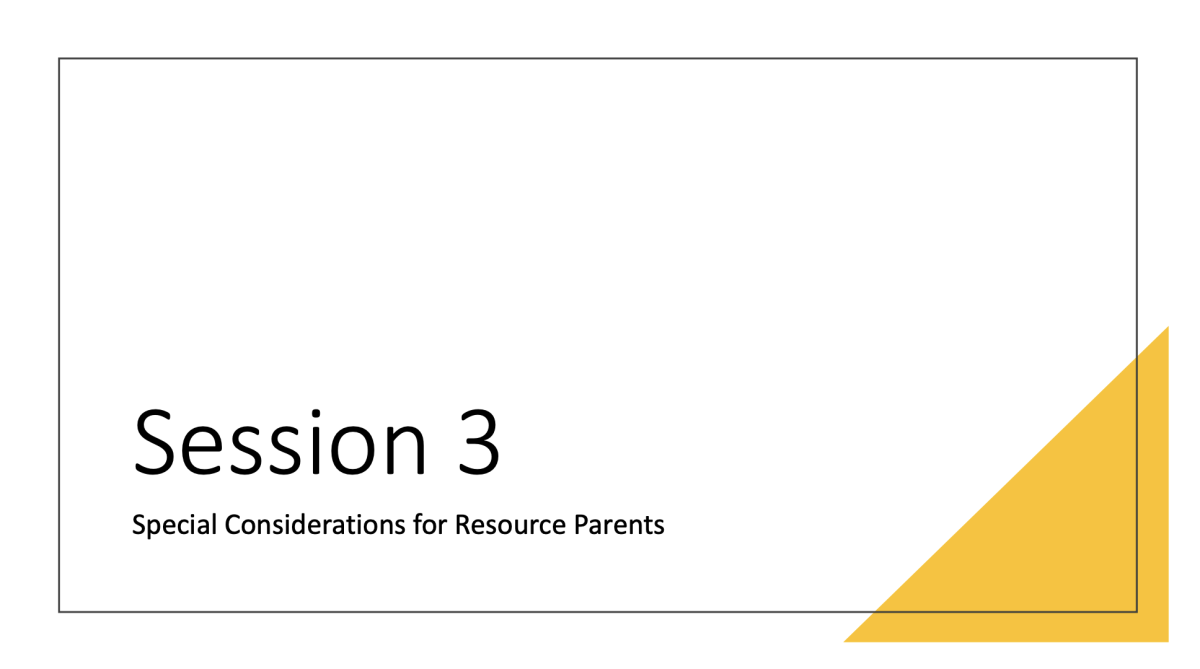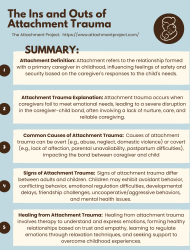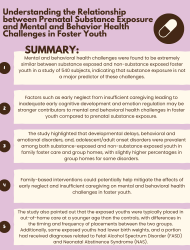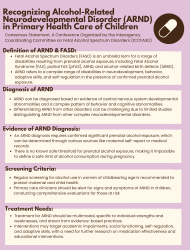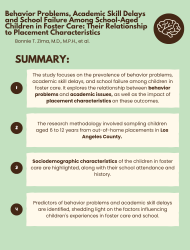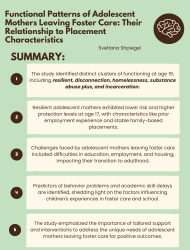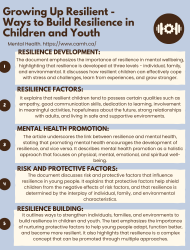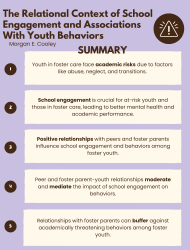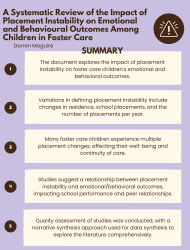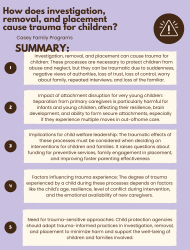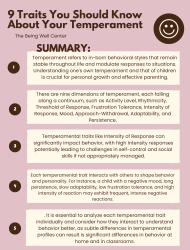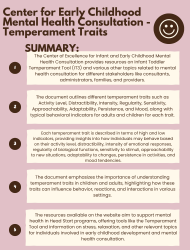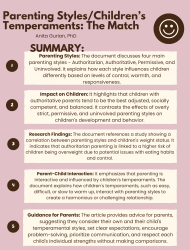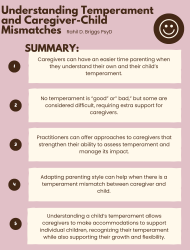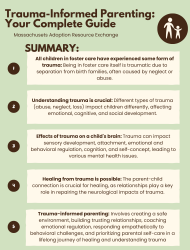PREP Resources
The UCLA TIES PREP series, available to resource families working with the Department of Children and Family Services (DCFS) in Los Angeles County, aims to help resource parents feel more prepared and satisfied in their caregiving roles. In addition to the nine hours of training over three sessions, please find additional resources below on topics relevant to caring for children with a history of foster care, including Attatchment, Mental Health, Parental Substance Use, Resiliency, Risk Factors, Temperament, and Trauma-Informed Parenting.
Click below to see handouts. Each link will lead you to the overall summary for each section.
TIES provides resource families with tools to foster secure attachment, including strategies for building trust, understanding trauma’s impact on attachment, and supporting resilience in children with challenging backgrounds.
- Attachment Trauma: Signs, Causes & How to Heal. Emily Guarnotta, PsyD, Rajy Abulhosn, M.D.
- The Ins and Outs of Attachment Trauma. The Attachment Project. https://www.attachmentproject.com/
TIES offers resource families mental health support resources, including trauma-informed strategies to address behavioral challenges, foster emotional resilience, and promote well-being in children with histories of adversity.
- Behavior Problems, Academic Skill Delays and School Failure Among School-Aged Children in Foster Care: Their Relationship to Placement Characteristics. Bonnie T. Zima, M.D., M.P.H., et al.
- The functional patterns of adolescent mothers leaving foster care: Results from a cluster analysis. Svetlana Shpiegel, et al.
TIES equips resource families with strategies to understand and empathize with substance-using biological parents, address the impact of prenatal substance exposure, and implement family substance abuse prevention practices.
- Understanding the Relationship between Prenatal Substance Exposure and Mental and Behavior Health Challenges in Foster Youth.
- Recognizing Alcohol-Related Neurodevelopmental Disorder (ARND) in Primary Health Care of Children. Consensus Statement. A Conference Organized by the Interagency Coordinating Committee on Fetal Alcohol Spectrum Disorders (ICCFASD)
TIES provides resource families with resilience-focused tools, emphasizing culturally-responsive, trauma-informed strategies to strengthen children’s coping skills and build on their unique strengths.
- Growing Up Resilient – Ways to Build Resilience in Children and Youth. The Center for Addiction and Mental Health. https://www.camh.ca/
TIES educates resource families on managing risk factors such as prenatal substance exposure, histories of abuse or neglect, and multiple placements, helping them provide informed, empathetic care tailored to each child’s needs.
- The Relational Context of School Engagement and Associations With Youth Behaviors. Morgan E. Cooley, PhD, et al.
- A Systematic Review of the Impact of Placement Instability on Emotional and Behavioral Outcome Among Children in Foster Care. Darren Maguire, et al.
- How does investigation, removal, and placement cause trauma for children? Casey Family Programs. https://www.casey.org/
TIES helps resource families understand and work with each child’s unique temperament, offering strategies to support emotional regulation and adaptability in ways that honor the child’s individual personality.
- 9 Traits You Should Know About Your Temperament. The Being Well Center. https://beingwellcenter.wordpress.com/
- Center for Early Childhood Mental Health Consultation – Temperament Traits. https://www.ecmhc.org/temperament/traits.html
- Parenting Styles/Children's Temperaments: The Match. Anita Gurian, PhD
- Understanding Temperament and Caregiver-Child Mismatches. Rahil D. Briggs PsyD
TIES offers resource families trauma-informed parenting resources, focusing on empathetic approaches that address trauma’s impact, promote healing, and build secure, supportive relationships with children.
- Trauma-Informed Parenting: Your Complete Guide. Massachusetts Adoption Resource Exchange. https://www.mareinc.org/
- Understanding Trauma-Informed Parenting for Foster Care. Knotts Family Agency. https://knottsfamilyagency.org/




